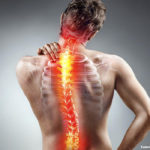Mind-Body Wellness Practices for Achieving Holistic Fitness Goals
In pursuit of our fitness goals, it’s essential to take a holistic approach that addresses not only our physical well-being but also our mental and emotional health. Incorporating mind-body wellness practices into our fitness routine can help us achieve a balanced and sustainable approach to overall fitness. Let’s explore some mind-body practices that can support us on our journey towards holistic fitness:
1. Mindful Movement:
Engaging in mindful movement practices such as yoga, Pilates, or tai chi can have profound benefits for both the body and mind. These practices promote strength, flexibility, and balance while cultivating mental focus, relaxation, and stress reduction. By connecting the movements of our body with our breath and being fully present in the moment, we can improve our physical fitness while nourishing our mental well-being.
2. Meditation:
Meditation is a powerful practice that helps calm the mind and cultivate inner peace and clarity. Regular meditation … Read More














